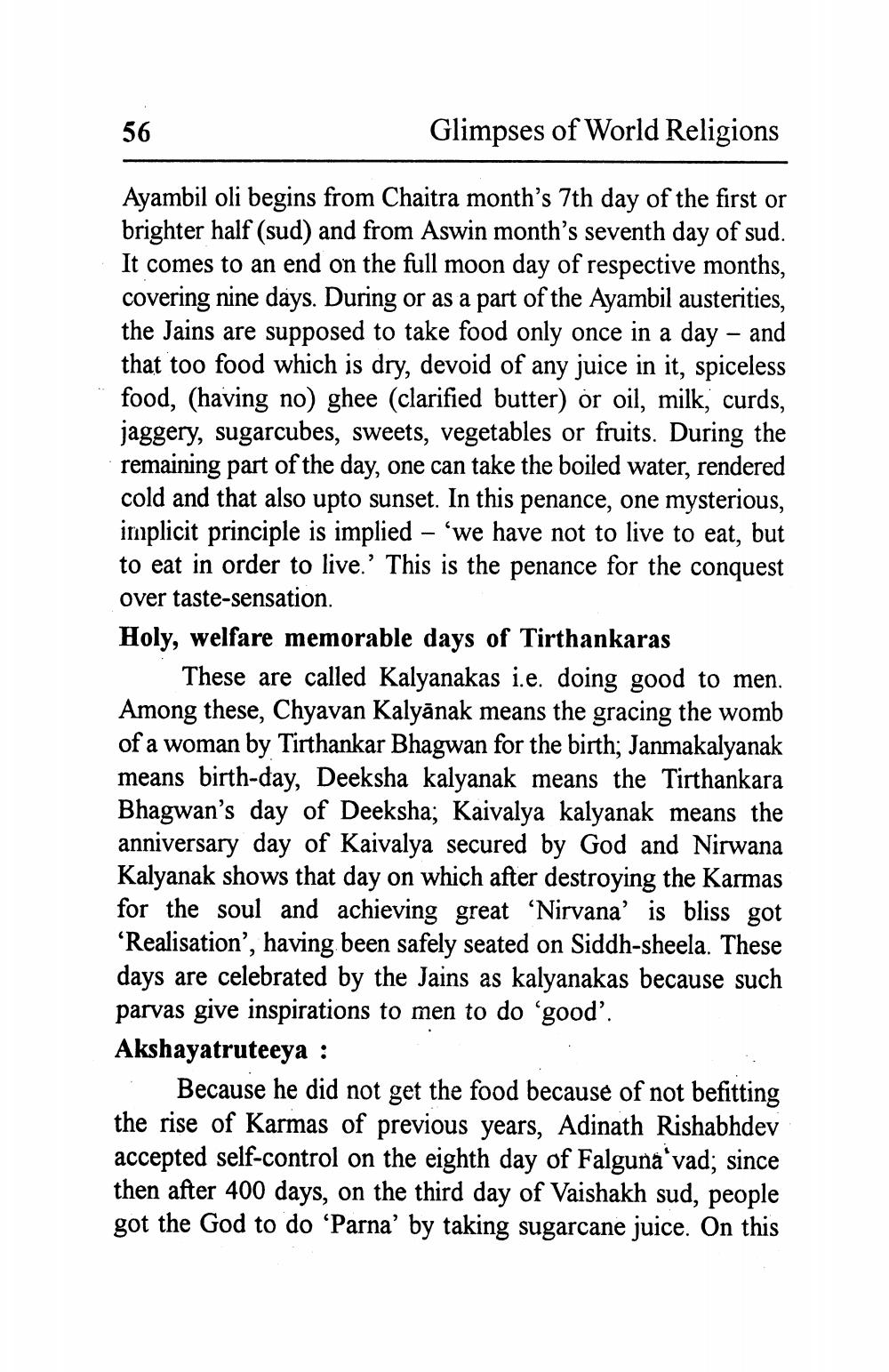________________
56
Glimpses of World Religions
Ayambil oli begins from Chaitra month's 7th day of the first or brighter half (sud) and from Aswin month's seventh day of sud. It comes to an end on the full moon day of respective months, covering nine days. During or as a part of the Ayambil austerities, the Jains are supposed to take food only once in a day - and that too food which is dry, devoid of any juice in it, spiceless food, (having no) ghee (clarified butter) or oil, milk, curds, jaggery, sugarcubes, sweets, vegetables or fruits. During the remaining part of the day, one can take the boiled water, rendered cold and that also upto sunset. In this penance, one mysterious, implicit principle is implied – ‘we have not to live to eat, but to eat in order to live.' This is the penance for the conquest over taste-sensation. Holy, welfare memorable days of Tirthankaras
These are called Kalyanakas i.e. doing good to men. Among these, Chyavan Kalyānak means the gracing the womb of a woman by Tirthankar Bhagwan for the birth; Janmakalyanak means birth-day, Deeksha kalyanak means the Tirthankara Bhagwan's day of Deeksha; Kaivalya kalyanak means the anniversary day of Kaivalya secured by God and Nirwana Kalyanak shows that day on which after destroying the Karmas for the soul and achieving great ‘Nirvana' is bliss got Realisation', having been safely seated on Siddh-sheela. These days are celebrated by the Jains as kalyanakas because such parvas give inspirations to men to do 'good'. Akshayatruteeya :
Because he did not get the food because of not befitting the rise of Karmas of previous years, Adinath Rishabhdev accepted self-control on the eighth day of Falguna'vad; since then after 400 days, on the third day of Vaishakh sud, people got the God to do ‘Parna' by taking sugarcane juice. On this




